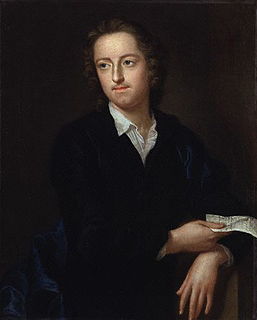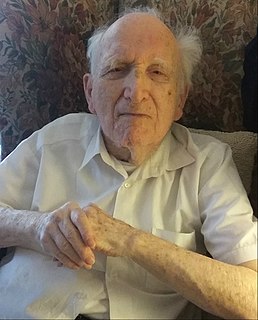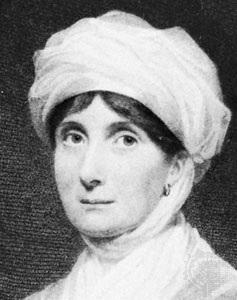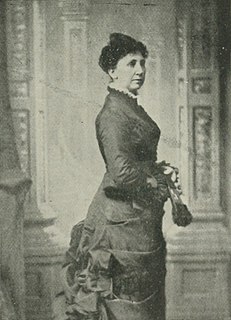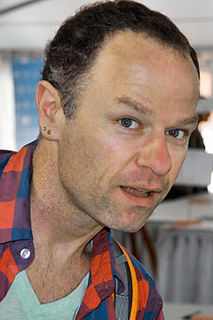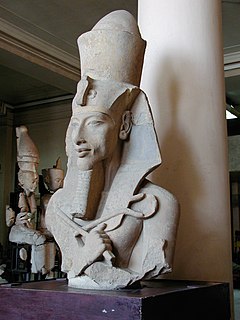A Quote by Thomas Gray
To each his suff'rings; all are men, Condemn'd alike to groan,- The tender for another's pain, Th' unfeeling for his own. Yet ah! why should they know their fate, Since sorrow never comes too late, And happiness too swiftly flies? Thought would destroy their paradise. No more; where ignorance is bliss, 'T is folly to be wise.
Related Quotes
Can I see another's woe, And not be in sorrow too? Can I see another's grief, And not seek for kind relief? Can I see a falling tear, And not feel my sorrow's share? Can a father see his child Weep, nor be with sorrow filled? Can a mother sit and hear An infant groan, an infant fear? No, no! never can it be! Never, never can it be!
We live, understandably enough, with the sense of urgency; our clock, like Baudelaire's, has had the hands removed and bears the legend, "It is later than you think." But with us it is always a little too late for mind, yet never too late for honest stupidity; always a little too late for understanding, never too late for righteous, bewildered wrath; always too late for thought, never too late for naïve moralizing. We seem to like to condemn our finest but not our worst qualities by pitting them against the exigency of time.
There is no tongue to speak his eulogy;
Too brightly burned his splendour for our eyes:
Far easier to condemn his injurers,
Than for the tongue to reach his smallest worth.
He to the realms of sinfulness came down,
To teach mankind; ascending then to God,
Heaven unbarred to him her lofty gates,
To whom his country hers refused to ope.
Ungrateful land, to its own injury
Nurse of his fate! Well too does this instruct,
That greatest ills fall to the perfectest.
And 'midst a thousand proofs, let this suffice,
That, as his exile had no parallel,
So never was there man more great than he.
Ah! but the moods lie in his nature, my boy, just as much as his reflections did, and more. A man can never do anything at variance with his own nature. He carries within him the germ of his most exceptional action; and if we wise people make eminent fools of ourselves on any particular occasion, we must endure the legitimate conclusion that we carry a few grains of folly to our ounce of wisdom.
I thought that if the right time gets missed, if one has refused or been refused something for too long, it's too late, even if it is finally tackled with energy and received with joy. Or is there no such thing as "too late"? Is there only "late," and is "late" always better than "never"? I don't know.
There is no passion that so much transports men from their right judgments as anger. No one would demur upon punishing a judge with death who should condemn a criminal upon the account of his own choler; why then should fathers and pedants be any more allowed to whip and chastise children in their anger? It is then no longer correction bat revenge. Chastisement is instead of physic to children; and should we suffer a physician who should be animated against and enraged at his patient?
But we are pledged to set the world free. Our toil must be in silence, and our efforts all in secret. For in this enlightened age, when men believe not even what they see, the doubting of wise men would be his greatest strength. It would be at once his sheath and his armor, and his weapons to destroy us, his enemies, who are willing to peril even our own souls for the safety of one we love. For the good of mankind, and for the honor and glory of God.
The promise of God is that you are His son. Her offspring. Its likeness. His equal. Ah...here is where you get hung up. You can accept "His son," "offspring," "likeness," but you recoil at being called "His equal." It is too much to accept. Too much bigness, too much wonderment-too much responsibility. For if you are God's equal, that means nothing is being done to you-and all things are created by you. There can be no more victims and no more villains-only outcomes of your thought about a thing.
That’s why you have to write your book right now, if that’s what you want to do. If you wait until you have the time, and the security, you might not want to do it. You’re in a race against your own enthusiasm. Don’t put it off because someone told you it’s never too late. That’s the worst lie. It’s never too late today, but it’s often too late tomorrow.
There was a small boy on crutches. I do not know his name, and I suspect I never will. But I will never forget his face, his smile, his sorrow. He is one of the millions robbed of hope and dignity by charlatans discussed in this book. Wherever and whoever he is, I apologize to him for not having been able to protect him from such an experience. I humbly dedicate this book to him and to the many others who have suffered because the rest of us began caring too late.
